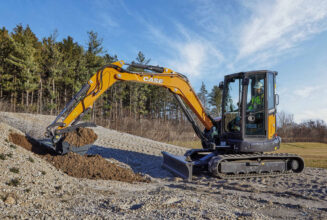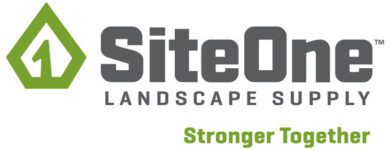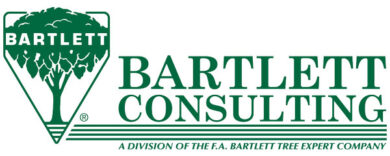Water Efficiency and the Value of Product Testing and Certification
By Lynette Von Minden
There’s little doubt that more consumers and business owners are taking the time to thoroughly research products and services before purchasing them. And who can blame us? When money’s tight and there’s a wide selection of products all promising to deliver top performance, it pays to be an educated consumer. As a result, products — from building supplies to cookware to vehicles and everything in between — that are certified or tested by an independent third party are gaining attention in their respective markets. Now, the green industry is also experiencing a rise in the popularity of product testing and certification. Manufacturers of irrigation products in particular are seeking out product certifications, mainly due to the growing trend of contractors and water purveyors supporting the installation of water-efficient products.
Getting certified
Currently, there are two agencies that offer third-party testing or certification of irrigation products: the Irrigation Association’s Smart Water Application Technologies (SWAT) initiative and Australia’s Smart Approved WaterMark program. The Irrigation Association created the SWAT initiative to provide an objective, third-party testing process to verify an irrigation product’s claims of water efficiency. Manufacturers can choose to have their products tested and the results published on the Irrigation Association’s Web site, www.irrigation.org In Australia, Smart Approved WaterMark is a benchmark certification for just about any product that uses water. Operated by a non-profit organization, Smart Approved WaterMark helps Australian consumers identify water-saving products that can be used in and around their homes. Manufacturers of water-related products sold in Australia can apply to have these products reviewed by the organization’s panel of independent technical experts. This panel then evaluates each product based on certain criteria related to water savings, environmental sustainability and adherence to product regulations and standards. It’s widely believed that other countries will follow Australia’s lead and establish their own certification standards.
The Environmental Protection Agency’s (EPA) WaterSense labeling program is the United States’ most comparable program to Smart Approved WaterMark. Since 2006, WaterSense has labeled certification programs for irrigation professionals that focus on water-efficient design, installation, maintenance and auditing. Professionals who are certified through these programs can then become a WaterSense partner. In addition to labeling certification programs for professionals, WaterSense also labels water-efficient products that meet predetermined performance criteria. Products like toilets, showerheads, faucets and urinals chosen to carry the WaterSense label, for example, have been proven to perform well, help save money and encourage innovation in manufacturing.
The WaterSense program released a standard for “Smart irrigation” controllers in the fall of 2009, and it is currently testing controllers claiming to meet that standard. However, unlike Smart Approved WaterMark, the WaterSense program is not currently testing or certifying any other Smart irrigation products such as soil moisture sensors or rain sensors. The EPA’s plan is to have the Irrigation Association’s SWAT initiative first establish testing protocols for these types of irrigation products. After those protocols have been established, the EPA will take the proper steps to certify that the products achieve or exceed the 20 percent water savings necessary to qualify for the WaterSense label.
“The evolution of WaterSense is igniting a more active interest in product certification within our industry,” said Brian Mueller, senior product manager for Rain Bird’s Accessories Division. “When the EPA is able to expand its labeling program to include other irrigation products, it will create a more widely recognized standard for evaluating product performance.”
The case for certification
Rick Foster, senior product manager for Rain Bird Corporation’s Accessories Division said that product certifications and testing protocols can make it a bit easier to introduce new irrigation products to the contractors who install them.
“Certain types of certification can immediately deliver credibility to any irrigation product, but particularly to newer products,” said Foster. “When a product incorporates new technology that may be unfamiliar to contractors, the fact that this product’s performance has been certified by an objective third party offers a level of reassurance. It gives contractors the knowledge that testing has been done, so they can feel confident in the product’s water conservation performance and overall reliability.”
An irrigation product’s certification doesn’t just spark confidence in contractors. It also makes it easier for contractors to promote new water-efficient controllers, sprays, rotors and sensors to their commercial and residential customers. Certification can be used as a sales tool, enabling contractors to classify products based on price point and water savings, giving customers an easy way to understand these sometimes unfamiliar products, and choose those that meet their specific needs. To a homeowner, for example, one spray head may not seem any different from another, but when a contractor can explain how that spray head has been categorized according to price and water efficiency when compared to other spray heads, it helps customers cut through the clutter.
“Rigorous product testing always precedes certification,” said Foster. “Contractors and end users can use these test results to calculate a return on their investment for the installation of water-conserving products. These simple calculations often reveal a short pay-back period. The combination of third-party endorsement from product certifications and a short payback period is a powerful sales tool for contractors.”
Selling and installing certified, water-efficient products is a valuable business opportunity for contractors, and the fact that many water purveyors and public agencies are offering rebates on these products makes them even more attractive to end users. In Seattle, for example, homeowners and property managers who choose to have contractors install an approved soil moisture sensor can receive up to $350 toward the cost of upgrading an existing irrigation system. Residents of Allen, Texas can get a rebate of up to $50 for installing a rain and freeze sensor on an existing irrigation system. These rebates certainly have monetary value, but they also have the potential to impact water use by encouraging more people to use water-efficient products.
“Many of these municipalities require that irrigation products successfully complete the Irrigation Association’s SWAT testing protocol before approving those products for consumer rebates,” said Mueller. “While SWAT testing isn’t technically a ‘certification,’ it definitely indicates that a product has been tested for water efficiency and promotes contractor confidence in the technology.”
Although it’s obvious that testing and certification can lend credibility to the products themselves, it also spotlights those manufacturers who are willing to go the extra mile and develop better, more water efficient products. Not every manufacturer is willing to take the time, expense and effort to have products tested and certified.
“Since there are currently no recognized industry standards for irrigation product performance, certifications and internationally recognized independent testing agencies provide a way to establish a standard and bring instant credibility to tested products,” said Mueller. “These agencies represent a standard for water conservation and performance in our industry and encourage all manufacturers to strive to meet or exceed that standard.”
What contractors need to know
Tested and certified irrigation system components come “pre-packaged” with a high level of credibility, but it’s still up to contractor to promote and sell them to their customers. In challenging economic times, when the number of new system installations is down, these products give contractors an opportunity to approach customers and offer an upgrade to their existing systems. The water-efficiency rebates available for these products in many areas of the United States can be a first important step that opens the door for that up-sell opportunity. “Most city, regional and state water purveyors will list available rebates on water efficient products — including irrigation system components — on their Web sites,” said Foster. “Rain Bird also compiles a comprehensive list of irrigation product rebates now available in the U.S. (available at http://rainbird.com/corporate/IUOW/watersavingsrebates.htm ).
Additionally, contractors should become familiar enough with the SWAT initiative, Smart Approved WaterMark and EPA WaterSense to understand how they test or certify irrigation products so that they can explain their significance to customers. These organizations may be becoming more familiar to irrigation industry professionals, but it’s less likely that a homeowner or commercial property manager knows about them. “I think that learning more about these agencies’ objectives and being familiar with their product test criteria would really benefit contractors,” Mueller said. “If contractors understand the rigorous testing and requirements of certification, they will be better equipped to communicate the value of these certifications to their customer audience to influence the sale of water-efficient irrigation products.”
It’s not all about simply hitting the street and making sales. Contractors who are able to explain product testing , certification, and return on investment to their clients can effectively build their reputations, helping them gain the trust and respect of current and future clients. “Contractors who promote and install certified, water-efficient irrigation system components can really differentiate themselves from their competition,” said Mueller. “Eventually, they become recognized as water managers within their community, offering a range of irrigation products that promote water conservation, while maintaining a lush healthy landscape. A contractor who sells these products and is truly interested in managing water reflects the highest degree of professionalism and builds his brand equity.”
Lynette Von Minden is public relations counsel at Swanson Russell, Lincoln, Neb.
Article provided by Rain Bird. Rain Bird’s new SMRT-Y Soil Moisture Sensor and WR2 Wireless Rain/Freeze Sensor products have both achieved Smart Approved WaterMark certification, and both are currently undergoing SWAT testing.
To learn more about the testing and certifying bodies mentioned in this article:
Irrigation Association’s SWAT Initiative
Smart Approved WaterMark
EPA WaterSense: www.epa.gov/watersense



